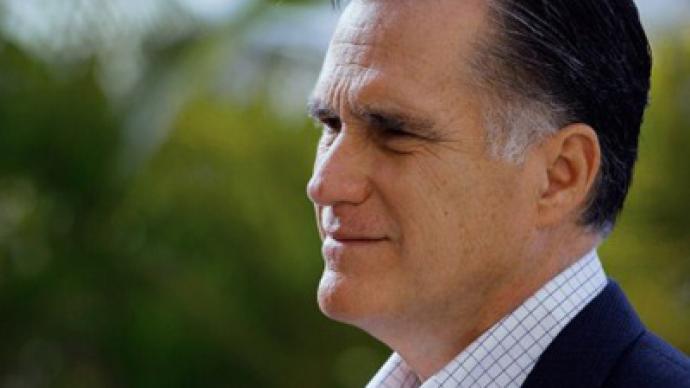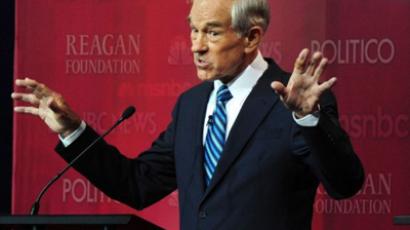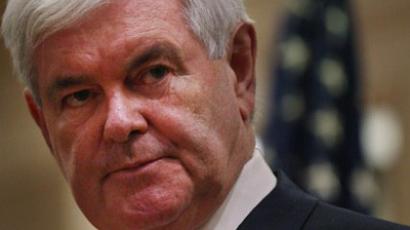Romney paid even less in taxes than you thought

Just before the clock struck midnight late Monday, the race for the Republican Party nomination experienced one of its momentous events yet. No, Mitt Romney’s Rolls Royce didn’t turn into a pumpkin.
The GOP contender did, however, finally give America a glimpse at his tax returns.And what do those records reveal? Absolutely nothing that the former Massachusetts governor and his GOP competitors hadn’t already alluded to: Mitt Romney made millions for sitting around during the last few years, and for it he paid mere pennies on the dollar at an effective tax rate of less than 14 percent.Following weeks of berating from Newt Gingrich and Romney’s other Republic Party rivals, the candidate finally came clean late Monday, releasing his tax return information for both 2011 and 2010. The disclosure came only an hour after a televised debate from Tampa Bay, Florida wrapped up, and for Romney, that might have been a good thing. While he previously had estimated that he paid roughly 15 percent on his millions worth of income in 2010, the papers released following the debate revealed that the actual rate that Romney paid was closer to 13.9 percent. In 2010, Romney paid only around $3 million in taxes while claiming an income of $21.7 million. The former governor says he earned around the same in 2011, and for it he forked over around $3.2 million. While those numbers may look big, in relation to what others pay the proportion is incredible skewed in the candidate’s favor. Typically, a tax rate of 15 percent is reserved for Americans with an annual taxable income of under $34,500. Given Romney’s wealth, he would have been expected to pay a rate a bit higher, more to the tune of at least 25 percent. Instead, rather, Romney was only returning around the same proportion of his wealth that most middle-class Americans do. Romney adds, however, that those figures only correlate with his 2010 and estimated 2011 returns. What he made before then — specifically during the financial crisis of 2008 and 2009 — remains a mystery. Speaking from the debate stage in Tampa Monday night, Romney seemed certain that what he was about to release would suffice to the American people. As it has been among the top targets of attack by his fellow frontrunners so far, such stabs at his wealth — and willingness to go to all accounts to keep as much from Uncle Sam as possible — are sure to haunt him further into the election season. Romney has defended his records, however, and in the full release of his last two tax filings — accumulating to around 500 pages — the former governor says that all of his tax filings were done so legally. By making millions in capital gains, Romney was able to escape a higher tax rate, despite raking in millions.“Governor Romney has paid 100 percent of what he owed,” campaign chief counsel Ben Ginsberg said in a statement Tuesday. Even before he released the revamped statistics, former House Speaker Newt Gingrich attacked Romney over his alleged 15 percent rate late Monday, the crowd in Florida that under his new tax guidelines, the rest of America would be brought down to a similar rate. Under his own proposal, Gingrich said, he would work to bring the rest of Americans down to a fair rate rather than work to get Romney up to snuff with federal income tax expectations. For Romney’s camp, they so far see the release of the documents as a solid step towards once again securing the lead in the GOP race. Romney had been viewed as the frontrunner by-and-large in recent weeks, only to slip in the polls behind Newt Gingrich after the New Hampshire primary. "It's an extensive disclosure and we feel that it adequately satisfies the public," Ben Ginsburg added to members of the media early Tuesday. After prolonging the release for weeks despite ongoing urges from the other contenders, however, Romney acknowledged to Fox News on Sunday that waiting so long could have had a negative impact on his campaign."We made a mistake for holding off as long as we did," said the former governor.As he slips in the polls, the truth behind Romney’s tax records might be just one more thorn in the side of his campaign, though. In an election season fueled by disputes over the incredible income inequality in America, the revelation that Romney netted around $45 million during the last two years and paid only 13.9 percent on it could cost the candidate a good number of votes before the upcoming Florida primary. Gingrich himself has released his tax records, revealing that he paid around 31.6 percent or nearly one million dollars in federal taxes on an adjusted gross income of over $3.1 million.Texas Congressman Ron Paul said last week that he had no plans to release his own tax records, but for a different reason. “I’d probably be embarrassed to put my financial statements next to (the other candidates') income and I don’t want to be embarrassed because I don’t have a greater income,” Congressman Paul said last Thursday at the previous debate. He added that while Gingrich’s ties with lobbying groups and Romney’s history with Bain Capital make it an easy point to attack, Paul said there was obviously less of a concern of how he made his money.“I don’t’ think people need that because nobody is challenging me because I have no conflict of interests and I don’t even talk to lobbyists and I don’t take that kind of money,” said Paul.The Florida state primary will pose the next big obstacle for the four remaining major candidates. Romney, Gingrich, Ron Paul and former Pennsylvania Senator Rick Santorum will battle it out in the Sunshine State in the next GOP presidential primary, scheduled for Tuesday, January 31.














